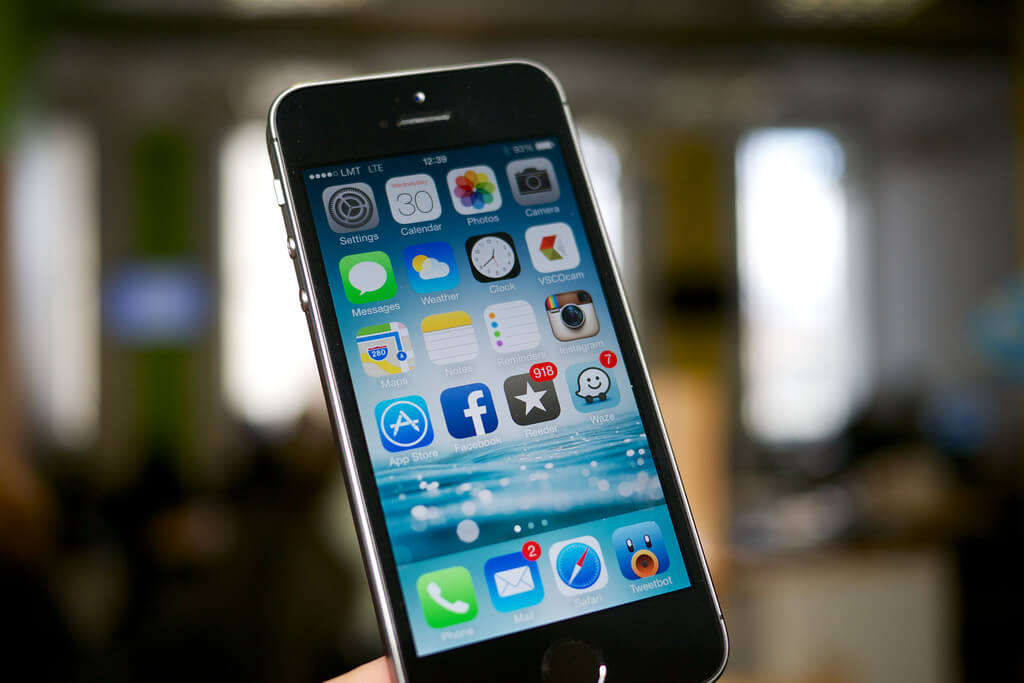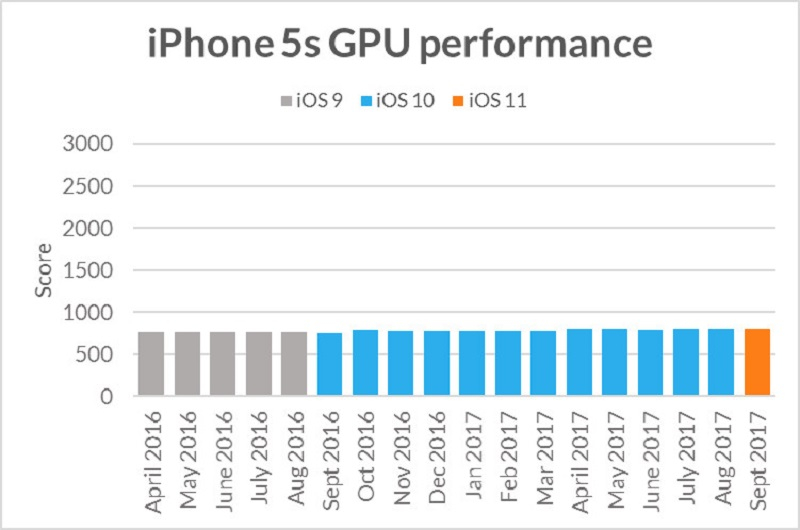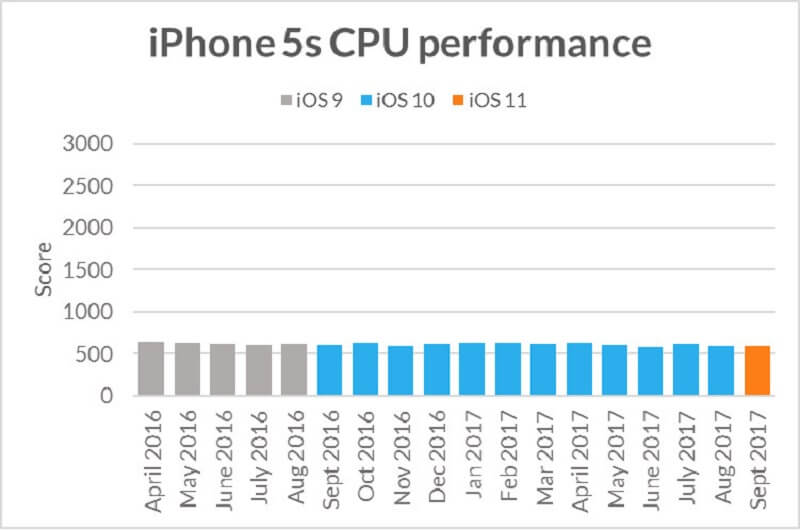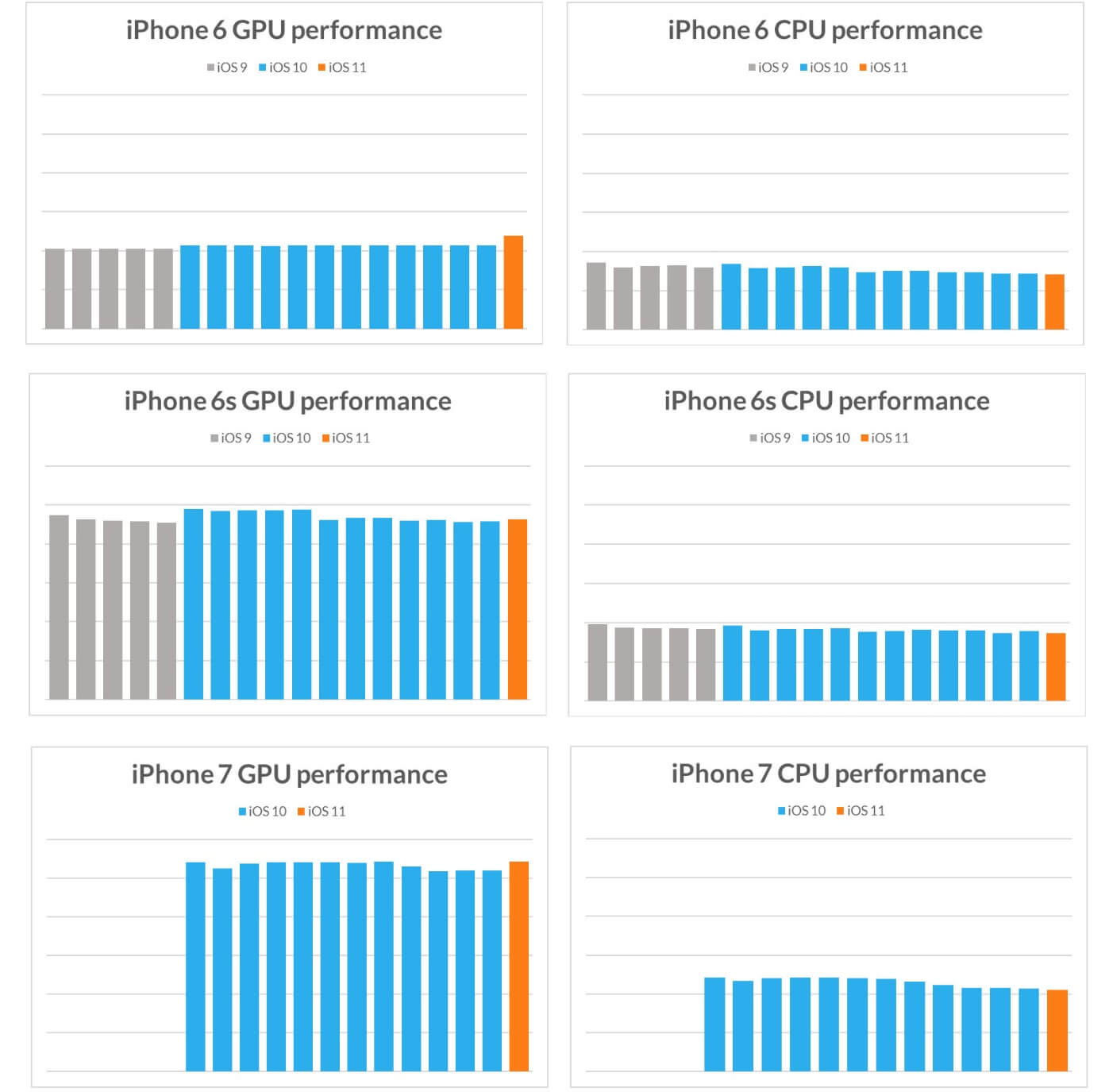
You’ve probably heard the theory that every new software update put out by Apple causes its older iPhones to slow down. It’s a common belief, but benchmarking firm Futuremark has spent the last year trying to debunk the theory.
Apple isn’t the only firm accused of using “planned obsolescence” as a way of getting consumers to upgrade. Rumors that Nvidia hampers the performance of its older GPUs through driver updates have been around for years, though YouTube channel Linus Tech Tips recently proved this wasn’t the case.
Futuremark, the company behind the likes of PCMark10, began collecting iPhone performance data in 2016. Using its own 3DMark free benchmarking app, it conducted over 100,000 tests for seven different phone models across three versions of iOS — 9, 10, and 11.
Starting with the 2013 iPhone 5s, the tests show that the handset’s GPU and CPU performance has remained consistent throughout each iOS update. It’s the same story with the iPhone 6, 6s, and 7, all of which show only slight CPU drops, which Futuremark claims users would be unlikely to notice. It attributed these declines to minor iOS updates and other factors.


The benchmarking company says the results prove Apple doesn’t intentionally slow down the performance of older iPhones with each new iOS release. It does, however, concede that updates might add new features that use more resources or require more processing power, which might affect "people's perception of performance."

But the biggest problem with these tests is that they don’t tell the whole story. Many commentators point out that they’re not an accurate reflection of real-world performance. There are numerous reports of GUI lag following an iOS update, while poor keyboard response times are also a problem. Apple might not be purposely hindering older iPhones to force users to upgrade, but it appears that optimizing each new version of iOS to work with these devices isn’t the company's highest priority.
https://www.techspot.com/news/71309-benchmarks-suggest-apple-doesnt-purposely-slow-down-old.html